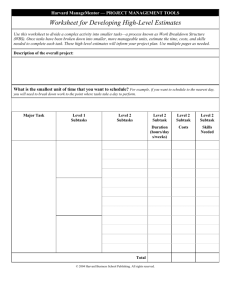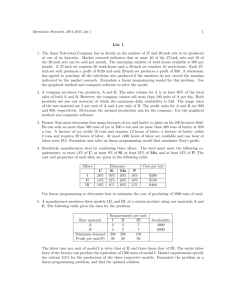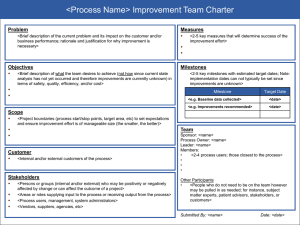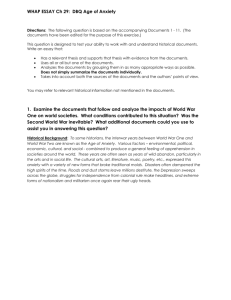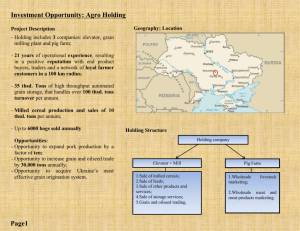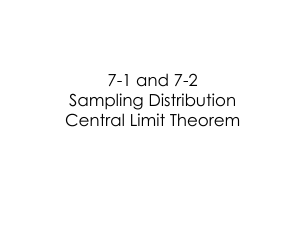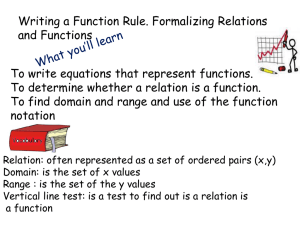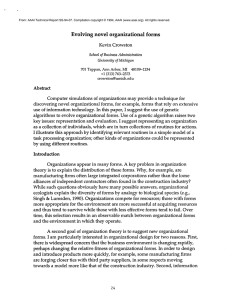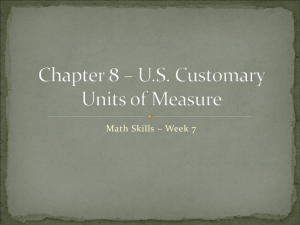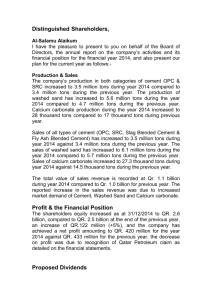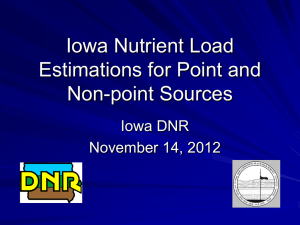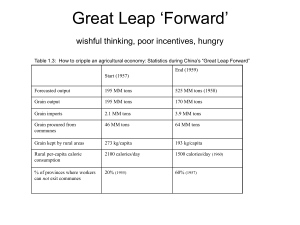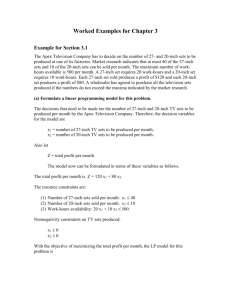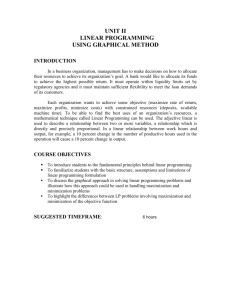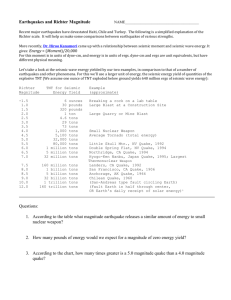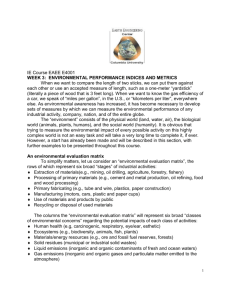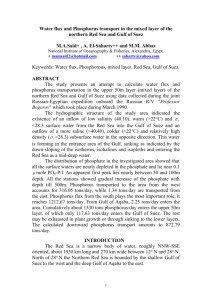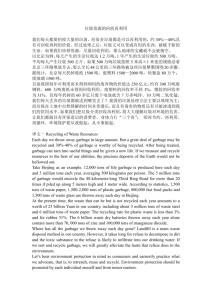Ch. 12 PM
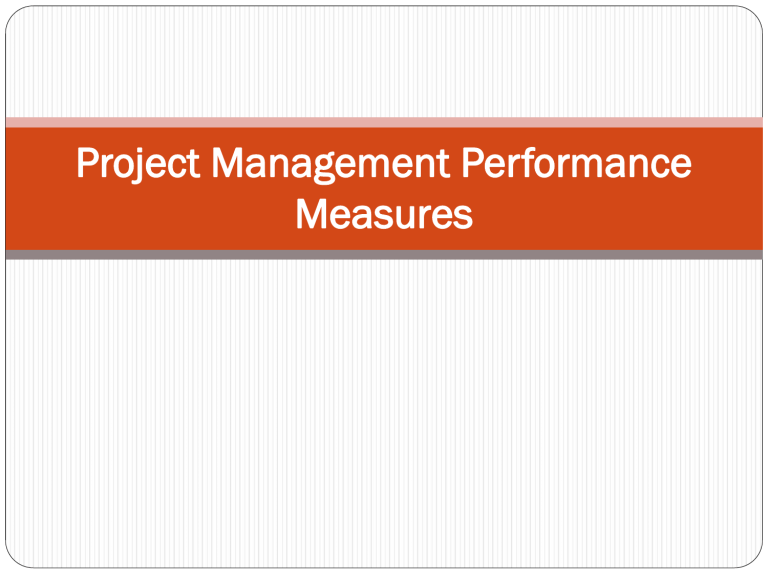
Project Management Performance
Measures
Project Performance Measurement
The purpose of performance measurement is to help organizations understand how decisionmaking processes or practices led to success or failure in the past and how that understanding can lead to future improvements.
Project Process
Once the execution of the project starts, the project team must periodically report their progress on each task.
Since the nature of each task varies, no single reporting method is suitable, and several methods of measuring progress are required.
The six most common methods are presented in.
Methods of Measuring
Work Progress
1. Units Completed
2. Incremental Milestone
3. Start/Finish
4. Supervisor Opinion
5. Cost Ratio
6. Weighted or Equivalent Units
Method 1: Units Completed
Applicable to tasks that involve repeated production of easily measured pieces of work, when each piece requires approximately the same level of effort.
Wire pulling is a task where accomplishment is easily measured in terms of linear meters of wire pulled. If the work for pulling a certain type of wire is contained in a single control account, the units completed method can be applied.
Eg: 10,000 linear meters are to be pulled, 4000 LM have been pulled,
Percent complete = 4000/10000 = 40%
Method 2: Incremental Milestone
Method is applicable to any control account that includes subtasks that must be handled in sequence.
The task is segmented into subtasks and each is assigned an increment of progress for the entire task. Completing a subtask is the achievement of a milestone.
The milestone percentage is normally based, on the number of work-hours required
Example :
Method 3: Start/Finish
Applicable where no intermediate milestones can be defined or where the effort/time required is very difficult to estimate.
Examples include planning activities, cleaning, and testing.
In the start/ finish approach, a percent complete is arbitrarily assigned to the start of a task, and 100 percent when the task is finished.
For very short tasks, the start/finish percentages are usually 0 percent/ 100 percent.
Method 4: Supervisor Opinion
Supervisor simply makes a judgment of percent complete.
This is a subjective approach and should be used only for relatively minor tasks.
Examples include temporary construction, architectural trim, and landscaping.
Method 5: Cost Ratio
Applicable to long duration tasks or that are continuous during the life of a project, and which are estimated and budgeted on bulk allocations of money and work-hours rather than on the basis of production.
Examples include quality assurance, contract administration, and project controls
% complete = actual cost or workhours to date forecast at completion
Method 6- Weighted or Equivalent Units
Applicable when the task being controlled involves a long period of time and is composed of two or more overlapping subtasks, each with a different unit of work measurement.
Structural steel erection provides a good example of where this method may be applied.
Method 6- Weighted or Equivalent Units
Structural steel is normally estimated and controlled by using tons as the unit of measure.
However, each of the subtasks have a different unit of measure.
Each subtask is weighted by task level of effort
(usually work-hours) These weights are called
"rules of credit.”
As quantities of work are completed for each subtask, the quantities are converted into equivalent tons.
Example
Example
Earned tons = (allowed credit) * (summary quantity) x
( quantity to date/ total quantity)
Earned tons beams = (0.11) * (520 tons) * (45 each/859
Each) = 3.0 tons
Percent complete = 82.5 tons / 520= 15.9%
